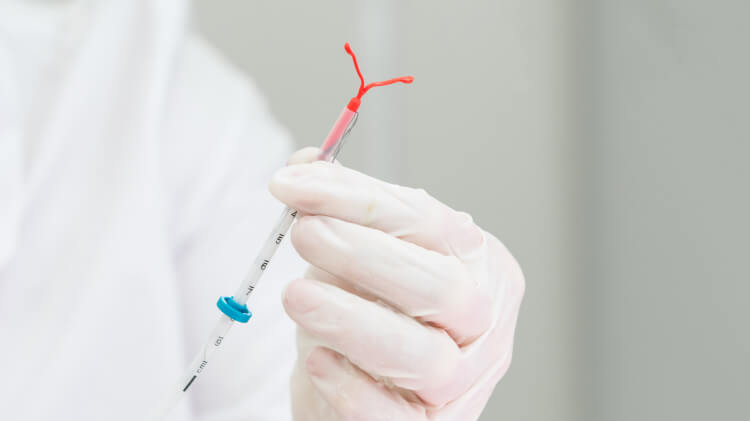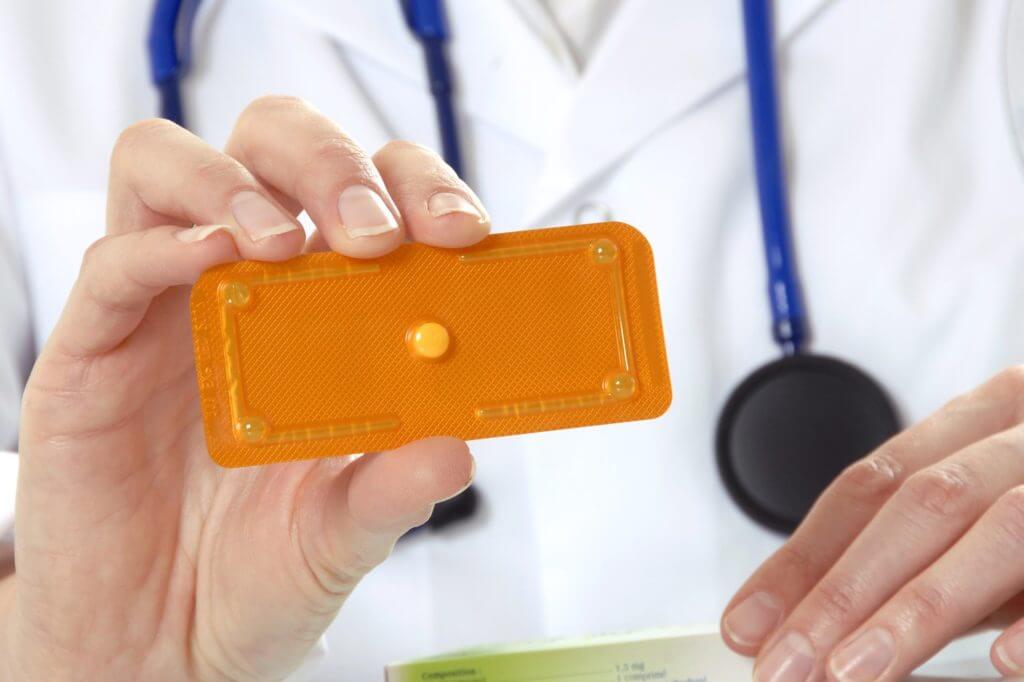The Pros and Cons of the Hormonal IUD (Mirena and Skyla)

The sphere of preventing unwanted pregnancy made a significant step forward in the last ten years. While condoms are still important and necessary for avoiding sexually transmitted diseases, a lot of women choose hormonal IUDs that belong to long-term birth control that helps to prevent pregnancy.
IUDs can contain copper or release hormones. The right type is chosen due to the personal peculiarities of the patient. Commonly, doctors recommend such brands as Mirena, Skyla, Liletta, Kyleena, and ParaGard because they are approved by the Food and Drug Administration (FDA).
In order to know what are the reasons to choose this type of contraception, as well as all the important information every woman should be aware of, – keep reading. But remember – this article cannot be a substitute for professional medical advice, diagnosis, or treatment. If you have any questions – talk to your health care provider.

What Is Hormonal IUD?
Hormonal Intrauterine Device (IUD) considered being one of the most effective birth controls. It looks like a T-shaped device made of flexible plastic, small and compact, and is meant to be placed into the uterus.
There are two types of IUD devices: copper (ParaGard) and hormonal (Mirena, Skyla, Liletta, Kyleena). Before choosing a suitable method of birth control, it is crucial to have an appointment with a specialist.
How Does IUD Birth Control Work?
The working principle of both copper IUDs and hormonal ones is pretty similar. They change the way in which the sperm moves, so it cannot reach the egg, and the woman is not able to get pregnant.
Talking about the ParaGard device, it has copper in its base, which creates an unfriendly environment for the sperm, so it can’t get to the egg.
In Mirena, Skyla, etc., the hormone progestin is used for preventing pregnancy (this hormone is very close to the progesterone that can be found in the human body). They can be effective in two different ways:
- The device may thicken the mucus on the cervix, which blocks the sperm and do not let it get in;
- It pauses ovulation, so there is no egg in the ovary to fertilize.
One more component that such products as Mirena and Skyla have in common is the levonorgestrel hormone (that is why sometimes you can see such categories as levonorgestrel intrauterine device).
Also, Mirena and Skyla work for a different period of time. For 3 years, Skyla is effective at preventing pregnancy; Mirena releases hormones for up to 7 years. The type of IUD is defined by the health care provider in the clinic.
What Is the Difference Between Hormonal and Copper IUD?
As we’ve already mentioned, both copper IUD and hormonal devices placed in your uterus are pretty similar in their working principle. However, there are some differences. Any hormonal product inserted into the uterus releases progestin, which thickens the mucus and creates kind of a shield that makes it impossible for sperm to get to the egg. They are also used in case of excessive periods (menstrual bleeding).
On the other hand, the copper ones wreck the sperm and make it impossible for it to move. Moreover, it blocks the process of producing ready-to-be fertilized eggs. That is why they also play the role of emergency contraception if one is needed.
What Are The Pros and Cons Of Mirena and Skyla?
Let’s stop on two of the most popular hormonal IUDs devices to prevent pregnancy – Mirena and Skyla. As with every product and procedure, there are pros and cons of using them. Here are the most popular ones.
Pros
- When using Mirena/Skyla, the ovulation is not stopped completely (that brings many benefits because this natural process is needed for producing estradiol and progesterone).
- Comparing to other methods of pregnancy prevention, hormonal ones produce a lower dose of a contraceptive drug. In this way, such side effects as frequent mood changes and cramping appear less often (however, they are still present).
- Women do not need to take anything after the insertion, and the effect lasts for a long time (Skyla – 3 years, Mirena – up to 7 years).
- It is possible to get pregnant right after the doctor removed inserted device. However, sometimes women need to wait for the first 2-3 periods cycles to pass after the removal.
- They can stop heavy period bleeding. Everything is because of the hormones releasing inside the body.
- Hormonal IUD is helpful in the case of endometriosis (the issue when tissues similar to those inside the uterus grow outside the uterine walls).
Cons
- Levonorgestrel in its composition can cause various side effects. We’ll list all of them in the next paragraph.
- An ovarian cyst is possible in 5% of the patients.
- Irregular bleeding and spotting are possible during periods during the first six months after insertion of IUD.
- Women can feel pain during the insertion session. The doctor might tell them to take painkillers before the procedure, but they are not always helpful.
- There is a possibility of pelvic inflammatory disease. It may happen during the first three weeks after IUD insertion into the uterus and only when the patient had or is currently having gonorrhea or chlamydia.
- There are some chances of uterine perforation, which can lead to surgery.
- It does not protect from the risk of various diseases which appear after unprotected sex.
- Levonorgestrel can enter the breast milk and reach the baby, which is harmful to them.
- They can cause the risks of ectopic pregnancy.
- It is still possible to get pregnant.
Are There Any Side Effects After Hormonal Birth Control?
Both Mirena and Skyla have similar side effects due to the same active substances in the composition of IUD devices. The list includes:
- Changes in the periods cycle: heavy bleeding, bad cramping, or long pauses;
- Breast tenderness or pain;
- Mild discomfort sensation in the uterus;
- Risk of perforation in the uteurus;
- Often mood swings;
- Headaches and migraines;
- The uncomfortable feeling during sex (usually, it lasts for one-two weeks after IUD was inserted).
To find out what problems can appear, discuss all the details and health issues related to your individual case with your doctor to get more health information. If the patient got pregnant, the Mirena or Skyla device has to be removed.
Are There Any Risks for Women?
As with every hormonal IUD medical device, Mirena and Skyla have possible risks.
First of all, as we’ve already mentioned, if patients get pregnant, the possibility of ectopic pregnancy is very high. Secondly, as with all IUDs, Mirena can change the position in the cervix (or fall out entirely), which increases the number of unwanted pregnancies. And finally, this type of birth control can be dangerous for those with such health issues as cancer (cervical, breast, or uterine), pelvic inflammatory disease, or constant unexplained uterine bleeding.
Of course, it is important to discuss every possible complication and emergency with the health care provider, but still, it is better to be aware.
The Bottom Line
As you can see, such IUDs as Mirena and Skyla are among the most effective and have many benefits. Compared to other contraceptives, they do not cause menstrual problems, pain, and other health-related complications.
Make sure to discuss everything with your doctor and go ahead – try new alternatives. They are checked by lots of women, so you do not need to worry. Good luck and stay safe!






